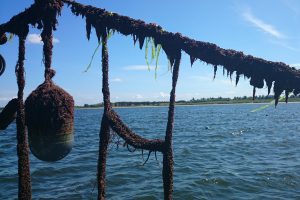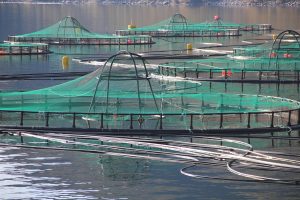Danish-German case study
The Danish-German case study investigates opportunities for aquaculture in the south-western Baltic Sea. With eutrophication being one of the main environmental issues in the Baltic Sea, nutrient input and outtake needs to be monitored carefully. Opportunities for aquaculture are limited unless nutrient input is mitigated. Taking advantage of the filtering capacity of mussels, mussel farms can be one option to mitigate eutrophication effects. The focus of the case study is on finding suitable sites for mussel farming and evaluating these sites based on ecosystem services.
Zoning for aquaculture, in particular mussel farming, will be investigated, based on spatial analysis regarding environmental conditions, human activities and farming specific requirements. Alternative locations will be evaluated in terms of effects on ecosystem services (regulating, provisioning and cultural services) in order to identify most suitable areas. The evaluation of potential sites based on ecosystem services is an integral part of the case study and will form the basis of trade-off analysis.


